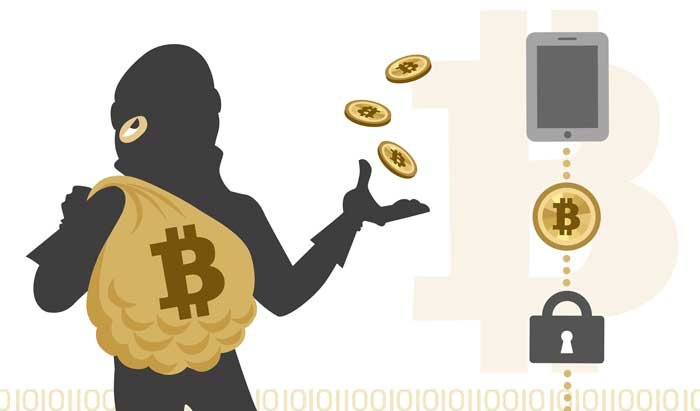On May 21, Hilmi Git was arraigned by the cybercrime division of the State Attorney's office of Hebron, Israel for supposedly utilizing more than 800 Israel credit cards to complete 20,000 false exchanges and laundering the cash using bitcoin.
The indictment, documented in the Tel Aviv locale courts, affirms that the exchanges they guarantee Git made add up to over $280,000 and that he cleaned over $8 million through the span of 10 years. The $8 million dollars was covered up as bitcoin, and the state seized no less than 1,071 BTC, funds that will be reallocated pending his conviction.


In one of his shadier moment, he deliberately put on a show to offer amazing cell phones at a discount but would run off at the moment the phones were registered with their contract. He would then assume control over the client's profile and post messages in their name appearing to affirm receipt of their merchandise, attracting more victims.
The accused's illegal scheme spanned 10 years and according to the State prosecutor, he managed a wide range of website as well as forums of which he used in laundering money. He also taught others how to perform similar scams, gaining payment for his teaching services.
Fit offered free and and professional premium participation for customers purchasing access to credit cards from to engage in fraudulent activities, making it one of his serious crimes of credit card fraud. Additional reports also state that he offered detailed guides on his website, training users on how to hack and burglarize individuals online in addition to offering them tools to help them carry out these attacks. He was quoted by calcalist, an Israel media outlet saying
"We are criminal,any place we can take cash, we'll take it, regardless of whether it's from Israel, the US. or evem the moon"

The state will argue that Git will "not hesitate tot commit fraudulent offenses against innocent victims, ""in hopes of an indefinite remand without bail.
Git's prosecution is a milestone case in Israel which has set a point of reference for Bitcoin seizure and may do likewise for the appropriation of Bitcoin associated with any other criminal activity.
Israel, however, isn't the first country to confiscate bitcoin or cryptocurrencies from criminals. Earlier this years, south korean law enforcement busted a man who was subsequently charge charged with operating a dark web site illegally. Although the type of content he was posting on his site was unknown, he was handed a one-year jail sentence, in addition to the police seizing his bitcoin wallet which contained 191 bitcoin in it, worth $2,221,680 at that time. the country had previous busts of criminals and fraudulent financial activities.
The United States has also undertaken such action already this year. In March, the U.S Marshal Service auctioned exactly 2,170 bitcoin confiscated in many federal, civil and administrative cases. The confiscated bitcoin were offered 14 blocks, of which two were of 500 BTC, 11 blocks containing 100 BTC and one block with 70 BTC. Winning bidders were privately on the same day as the auction.

The U.S Marshals Service has already unloaded aggregates of Bitcoin seized over the span of common and criminal procedures. on Jan. 22, 2018, the organization sold 3,813 BTC, a total taht was worth over $40 million by that day's trade costs. Past to this year, the last U.S. Marshals sale of seized Bitcoin was in August 2016 where 2,700 BTC were sold off. The estimated value of the cryptocurrency at the time was about $1.6 million.
The Australian government has also auctioned 24,500 bitcoins which were seized from a man after he was arrested for in 2013 for a running a dark web drug empire. The was however, well before the huge explosion of bitcoin value.
Congratulations @nevergiveup2514! You received a personal award!
You can view your badges on your Steem Board and compare to others on the Steem Ranking
Do not miss the last post from @steemitboard:
Vote for @Steemitboard as a witness to get one more award and increased upvotes!